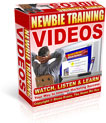Why Write an eBook?
It's not true that everything that has been said has
already been written. Since that unfortunate axiom
came into use, the whole universe has changed.
Technology has changed, ideas have changed, and the
mindsets of entire nations have changed.
The fact is that this is the perfect time to write an
ebook. What the publishing industry needs are people
who can tap into the world as it is today - innovative
thinkers who can make the leap into the new millennium
and figure out how to solve old problems in a new way.
Ebooks are a new and powerful tool for original
thinkers with fresh ideas to disseminate information
to the millions of people who are struggling to figure
out how to do a plethora of different things.
Let's say you already have a brilliant idea, and the
knowledge to back it up that will enable you to write
an exceptional ebook. You may be sitting at your
computer staring at a blank screen wondering, "Why?
Why should I go through all the trouble of writing my
ebook when it's so impossible to get anything
published these days?
Well, let me assure you that publishing an ebook is
entirely different than publishing a book in print.
Let's look at the specifics of how the print and cyber
publishing industry differ, and the many reasons why
you should take the plunge and get your fingers
tapping across those keyboards!
Submitting a print book to conventional publishing
houses or to agents is similar to wearing a hair shirt
24/7. No matter how good your book actually is, or how
many critique services and mentor writers have told
you that "you've got what it takes," your submitted
manuscript keeps coming back to you as if it is a
boomerang instead of a valuable mine of information.
Perhaps, in desperation, you've checked out
self-publishing and found out just how expensive a
venture it can be. Most "vanity presses" require
minimal print runs of at least 500 copies, and even
that amount will cost you thousands of dollars. Some
presses' minimal run starts at 1,000 to 2,000 copies.
And that's just for the printing and binding. Add in
distribution, shipping, and promotional costs and -
well, you do the math. Even if you wanted to go this
route, you may not have that kind of money to risk.
Let's say you already have an Internet business with a
quality website and a quality product. An ebook is one
of the most powerful ways to promote your business
while educating people with the knowledge you already
possess as a business owner of a specific product or
service.
For example, let's say that you've spent the last
twenty-five years growing and training bonsai trees,
and now you're ready to share your knowledge and
experience. An ebook is the perfect way to reach the
largest audience of bonsai enthusiasts.
Ebooks will not only promote your business - they will
help you make a name for yourself and your company,
and establish you as an expert in your field. You may
even find that you have enough to say to warrant a
series of ebooks. Specific businesses are complicated
and often require the different aspects to be divided
in order for the reader to get the full story.
Perhaps your goals are more finely tuned in terms of
the ebook scene. You may want to build a whole
business around writing and publishing ebooks.
Essentially, you want to start an e-business. You are
thinking of setting up a website to promote and market
your ebooks. Maybe you're even thinking of producing
an ezine.
One of the most prevalent reasons people read ebooks
is to find information about how to turn their
Internet businesses into a profit-making machine. And
these people are looking to the writers of ebooks to
provide them with new ideas and strategies because
writers of ebooks are usually people who understand
the new cyberspace world we now live in. Ebook writers
are experts in Internet marketing campaigns and the
strategies of promoting and distributing ebooks. The
cyberspace community needs its ebooks to be successful
so that more and more ebooks will be written.
You may want to create affiliate programs that will
also market your ebook. Affiliates can be people or
businesses worldwide that will all be working to sell
your ebooks. Think about this? Do you see a formula
for success here?
Figure out what your subject matter is, and then
narrow it down. Your goal is to aim for specificity.
Research what's out there already, and try to find a
void that your ebook might fill.
What about an ebook about a wedding cake business? Or
an ebook about caring for elderly pets? How about the
fine points of collecting ancient pottery?
You don't have to have three masters degrees to write
about your subject. People need advice that is easy to
read and easily understood. Parents need advice for
dealing with their teenagers. College students need to
learn good study skills - quickly. The possibilities
are endless.
After you've writtten your ebook
Getting your ebook out is going to be your focus once
you've finished writing it, just as it is with print
books. People will hesitate to buy any book from an
author they've never heard of. Wouldn't you?
The answer is simple: give it away! You will see
profits in the form of promoting your own business and
getting your name out. You will find affiliates who
will ask you to place their links within your ebook,
and these affiliates will in turn go out and make your
name known. Almost every single famous ebook author
has started out this way.
Another powerful tool to attract people to your ebook
is to make it interactive. Invent something for them
to do within the book rather than just producing pages
that contain static text. Let your readers fill out
questionnaires, forms, even crossword puzzles geared
to testing their knowledge on a particular subject.
Have your readers hit a link that will allow them to
recommend your book to their friends and associates.
Or include an actual order form so at the end of their
reading journey, they can eagerly buy your product.
When people interact with books, they become a part of
the world of that book. The fact is just as true for
books in print as it is for ebooks.
That's why ebooks are so essential. Not only do they
provide a forum for people to learn and make sense of
their own thoughts, but they can also serve to promote
your business at the same time.
About The Author:
--------------------------------------------------
Stone Evans Will Personally Build A Money Making
Website Just For You That's 100% Ready To Take
Orders And Pull In Massive Residual Profits Today!
Get All The Exciting Details And Signup Now At:
http://www.PlugInProfitSite.com/main-9336
--------------------------------------------------
NOTE: You have full permission to reprint this
article within your website or newsletter as long
as you leave the article fully intact and include
the "About The Author" resource box. Thanks! :-)













